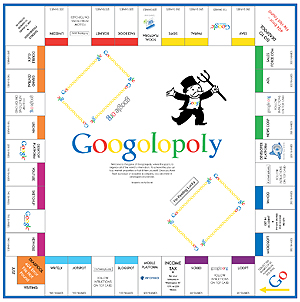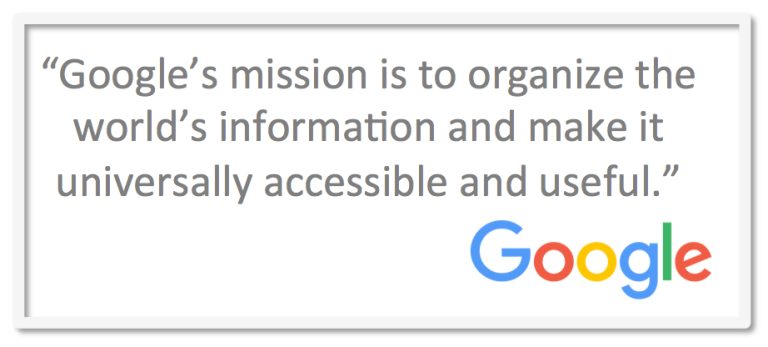Google Operates As A Monopoly & Doesn't Get Free Parking
Warnings For Meta & Amazon
A US judge has determined that Google operates as a monopoly and has leveraged this dominance to strengthen its market position.
This ruling, open to appeal, aligns the US regulatory approach with that of the European Commission regarding significant tech companies like Google, Meta, and Amazon.
Regulators now recognize that these companies’ business models can often lead to a market controlled by one large entity.
Consequently, the government is now responsible for protecting consumers from tech giants’ increasing power.
This key fact shapes our understanding of nearly all of Google’s activities.
Table of Contents
Approximately 80% of Alphabet’s (Google’s parent company) revenue comes from advertising, totaling $146 billion (£114 billion) in 2021.
Most of Google’s advertising revenue comes from its impressive 90% share of the general search engine market, one of the oldest and most vital online services.
Crawlers & Spiders
In order for Google to operate as a monopoly and to provide answers to queries ranging from the best apple pie recipe to recommendations for new vacuum cleaners, Google first collects information from every webpage on the Internet with a crawler – sometimes called a spider or bot.
It then utilizes its algorithim’s database of indexed websites, popular search keywords, user preferences from similar queries, and extensive knowledge of you to rank and return potential answers.
Businesses pay handsomely to have their content prominently displayed in Adwords, which appear alongside genuine search results. Higher-quality search results attract more consumers, making it easier to draw in advertisers. This also means ads can be customized to suit consumer preferences for retargeting campaigns, making key search terms more valuable and costly for advertisers.
Although research indicates that the actual return on investment from digital advertising is often unclear and can even be negative, search advertising remains highly sought after. It constitutes 66% of Google’s revenue and has driven substantial growth over the past decade.
Other services, like Google Maps and YouTube, also play a role. They generate advertising revenue and provide additional data to help refine search ads. This includes user interaction metrics such as time spent on pages, click patterns, user reactions, geographical location, and travel methods.

Everything Comes At A Price
Google reportedly spends over $26 billion annually to ensure it is the default search engine for as many users as possible to maintain its market dominance and continue gathering this valuable data. This investment is one of the main reasons for accusations that Google operates a a monopoly.
Google search is the default choice on any Android or Apple phone, holding a market share of 94.9%. It is also the default on nearly all web browsers. Research indicates that even if switching to another search engine is easy, the default option creates a cycle where alternatives need to gather more consumer data to compete effectively.
Google spends an additional $8.4 billion each year running its search engine on top of the considerable investment to keep it the default search engine. Currently, Microsoft’s Bing is the only search engine that genuinely competes with Google, investing billions to index the World Wide Web.
At one point, Microsoft proposed to share 100% of its Bing revenue with Apple to secure the default status over Google. Still, Apple declined, as Microsoft’s offer was below what Google could provide. Google isn’t necessarily a vastly superior search engine; however, on Microsoft Edge, which features Bing as the default, 80% of users continue to use Bing. Apple reportedly also has no interest in acquiring Bing from Microsoft.
The extensive reach of Google’s monopoly via search and its efficiency in monetizing ads make it costly for people and companies to switch to alternative search engines. In many respects, the advertising market for search engines resembles legal monopolies, such as water distribution or railroads, due to the high cost of establishing the required infrastructure, leaving little opportunity for competition.
In a statement, Kent Walker, Google’s president of Global Affairs, said that this decision acknowledges Google as the best search engine but implies the company shouldn’t be allowed to remain easily accessible. He noted the court’s recognition of Google as ‘the industry’s highest quality search engine, which has earned the trust of hundreds of millions of daily users.’
He stated that Google ‘has long been the best search engine, especially on mobile devices,’ and ‘has consistently innovated in search.’ He also mentioned that ‘Apple and Mozilla sometimes assess Google’s search quality against its competitors and find Google’s superior.’
“Given this and that people increasingly seek information in various ways, we plan to appeal. During this process, we will develop products that users find helpful and easy to use.”

Possible Next Steps
In this case, the judge did not specify how Google should cease its monopolistic practices.
Some competitors suggest separating Google operated a monopolistic advertising business from its search engine. Another potential solution is requiring Google to share the data it collects, which could enhance search results for all parties.
Just as having competing pipes deliver water to your home is impractical, it is not economically sensible for multiple companies to invest billions in collecting the same information. However, the potential benefits of Google sharing its data, such as enhanced search results for all, could pave the way for a more competitive and consumer-friendly tech industry.
Nevertheless, current attempts to establish concrete regulations for big tech lack tangible consumer benefits. For instance, the European Commission sought to prevent Alphabet from sending Google search results directly to Google Maps. However, one analysis revealed that after Google removed clickable maps and related links from its search results, there was only a slight increase in searches for other mapping services, and visits to Google Maps remained almost unchanged.
Thus, despite various legal efforts to foster competition in this market, significant questions still need to be answered about what practical measures regulators can take without worsening the consumer experience.
Watch this space.






